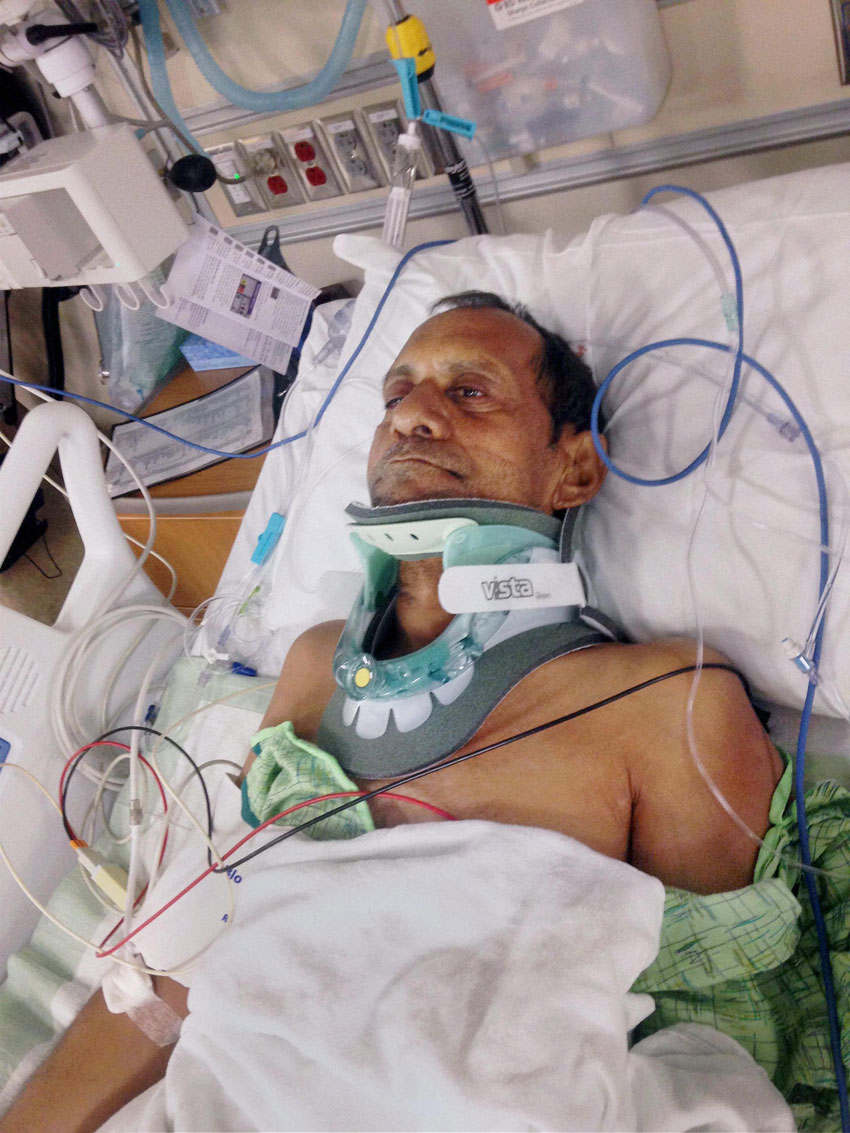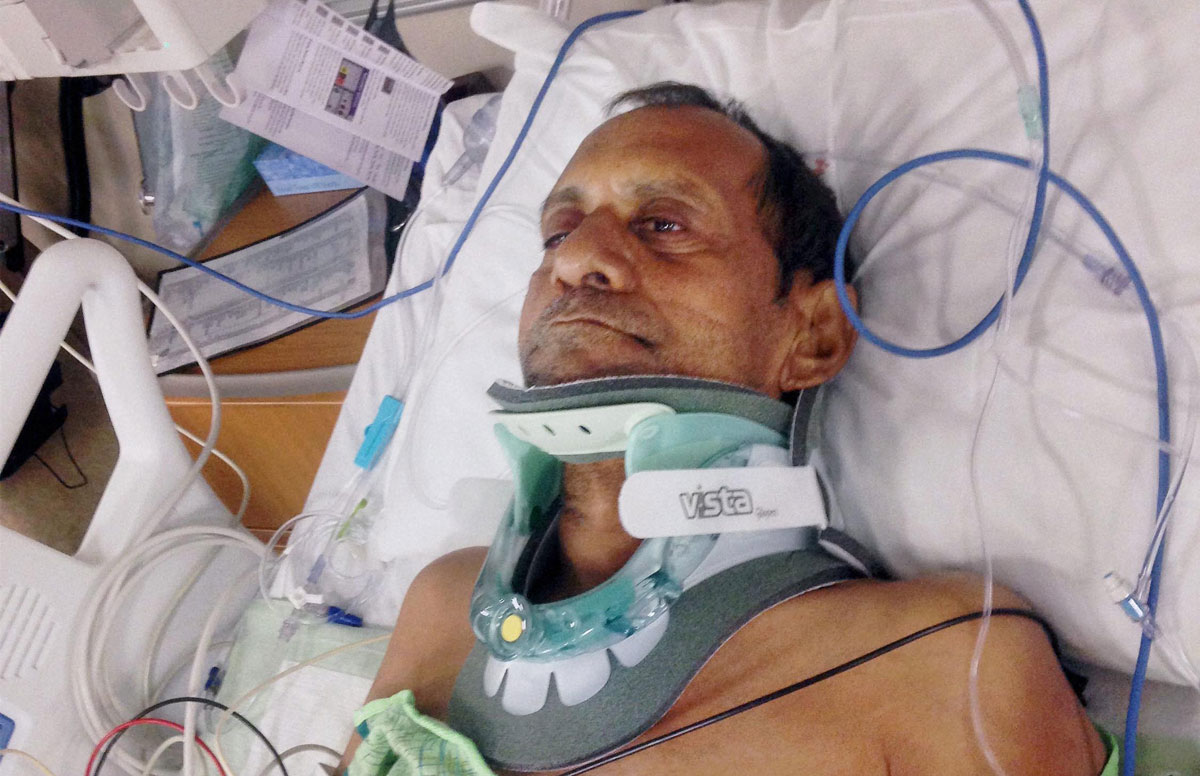OFFICER ACQUITTED

In a jolt to a paralyzed Indian grandfather’s bid to seek justice, an American police officer who brutally assaulted him has been acquitted by a U.S. court on the grounds of being “presumed innocent” after two mistrials could not establish his guilt beyond doubt. (Society, #SAALT, #IndianEmbassy, #USIndianEmbassy, #IndianConsulateNY, @Siliconeer, #Siliconeer)
Judge Madeline Hughes Haikala threw out the case against Alabama police officer Eric Parker, who faced up to 10 years in prison for using excessive force against 58-year-old Sureshbhai Patel in the Feb. 6 incident last year.
Haikala filed a 92-page opinion, ending with, “The Government has had two full and fair chances to obtain a conviction; it will not have another.”
Parker still faces a state charge of misdemeanor assault in Limestone County.
“The result in this case is by no means satisfying.
Hindsight brings clarity to a calamity,” Haikala was quoted as saying by AL.com.
“Mr Patel’s celebrated arrival in this country to begin a new life with his son was interrupted in two tragic minutes.
If Mr. Parker or Mr. Patel could take that time back, both would surely do things differently and avoid the events that have forever changed both of their lives,” the judge said.
“Mr. Patel had—and has—just as much right to be free from excessive force as every citizen of this country. He is welcome here, and it is appropriate to grieve his injury.
However, that injury, standing alone, does not provide the basis for a criminal judgment against Mr. Parker,” she said.
The judge wrote that Parker is “presumed innocent” and that evidence offered at two trials has not eliminated “reasonable doubt” as to his guilt.
“Two juries have communicated as much after lengthy deliberations that produced thoughtful questions and, ultimately, deadlock. The Court has no reason to expect a different result in a subsequent trial given the totality of the evidence that the parties have provided,” the judge said.
Haikala had not ruled for more than two months, with both sides predicting a ruling any moment for the last few weeks.


